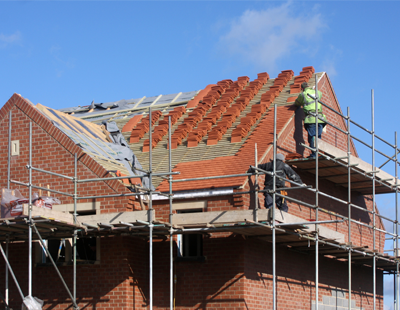There are many areas of opportunity for the private sector to deliver a greater flow of housing stock, but one of the more interesting prospects is investing in off-plan property. This type of investment can provide different advantages to a wide range of stakeholders in the property market.
Investors, for instance, can purchase property within a development before or during construction, at a price that could be below its future market value and look to make a quick return once it is completed and goes to market.
Developers, on the other hand, may buy vacant plots of land with planning permission, where the original developers have been unable to complete the build, and take on the construction project themselves, to the approved planning specifications, side-stepping a lot of costly red tape.
The draw of off-plan is also closely linked to the ongoing public conversation in UK on relaxing planning laws. Whatever side of the argument you fall on, it must be noted that the enduring debate for liberalising planning regulations highlights that the system is ridden with obstacles hampering ambitious development.
While some regulations are needed, and a balance between preservation and utility must be struck, the system can be a headache for stakeholders looking to build properties at scale.
Accordingly, buying land or property with planning permission can save developers not only a significant amount of time, but a great deal of money. The government appear to have back-pedalled on suggestions it would relax planning laws to facilitate a greater flow of new stock into the housing sector, so off-plan investing appears rejuvenated as a great opportunity to side-step prohibitive red tape.
Research by Hamptons indicates that in 2020, 33% of new home completions were sold off-plan. While this is significantly down from the peak of the trend in 2016, it must be noted that, for obvious reasons, 2020 was a turbulent year for the property market as a whole.
Due to the aforementioned circumstances, it looks likely that we will see a renewed trend towards off-plan completions in the coming months and years, and investors should assess the rewards and risks of this area of investment and carefully consider its place in their portfolio.
The rewards for investors
Naturally, the first upside most property developers and investors will observe is the potential to seek a bargain and acquire a property that could be below its future market value. Halted or delayed construction, and the pressure for the original developers to complete with strained finances, also means that there are good deals to be had.
This is reflected in Hamptons' assessment, that there has been a decline in off-plan sales for flats, which are typically larger, more complicated, and costlier to construct, while houses have increased in share.
Additionally, these properties have the potential to be flipped quickly. Investors will ordinarily purchase at the value of an uncompleted property, so can expect a good price and prospect for a healthy return in the short-term, through either sales or letting.
Another critical factor is that off-plan developments can be completed much faster than builds from the ground up. Cutting out the design process and planning applications carries a hefty cost-saving, but also allows developers to begin building as soon as convenient, allowing market opportunities to be seized upon more readily, and enabling earlier returns on the initial investment.
Further circumstantial trends have led way to increasing opportunities for investors. The influence of national lockdowns and the shuttering of offices during the pandemic has precipitated a rebalancing of regional property valuations – with prime central London (PCL) properties declining in value as most other regions have risen impressively.
Accordingly, new opportunities are emerging, as investors have begun to take note of the growth of second cities and seek opportunities beyond London, which could increase the potential for attaining capital growth as the property grows in value.
Risks to be aware of
Off-plan properties carry a significant upside – but should not be regarded as an easy flip investment. For halted builds taken up by new developers, for instance, there is the drawback of inflexibility, as investors will be beholden to the design fancies of the original architect, which may not be either as cost-efficient or profitable as they would like.
Changes to the design may, in some cases, be waved through seamlessly by local planning officers, but may equally require restarting the entire planning process, negating the primary benefit of this investment type.
By nature, off-plan properties are not a wellspring. There is a finite number of properties for sale with approved planning permission and off-plan investing is gathering traction among investors. As supply fades in response to rising demand, these investments may take on a less competitive price point.
Additionally, traditional lenders are not so well-equipped to handle applicants for off-plan properties, with many not offering a specific product for this investment type. As such, it can take longer than usual to see an approval and delivery of funds from a lender to complete a sale.
Given the nature of the investment, time can often be of the essence, as the competitive off-plan price will rise to normal market price if the property can be completed before finance is secured to buy it.
With the property market continuing to perform strongly, investors and developers alike should expect to see growing opportunity to add off-plan investments to their property portfolios. However, as with any investment, off-plan is not to be entered into lightly and it is vital that prospective investors apply their own rigorous due diligence beforehand and choose to partner with reputable investment providers and developers that are well versed in navigating the intricacies of off-plan investing.
*Jamie Johnson is the CEO of FJP Investment, an introducer of UK and overseas property-based investments to a global audience of high net-worth and sophisticated investors, institutions as well as family offices









.png)










Join the conversation
Be the first to comment (please use the comment box below)
Please login to comment